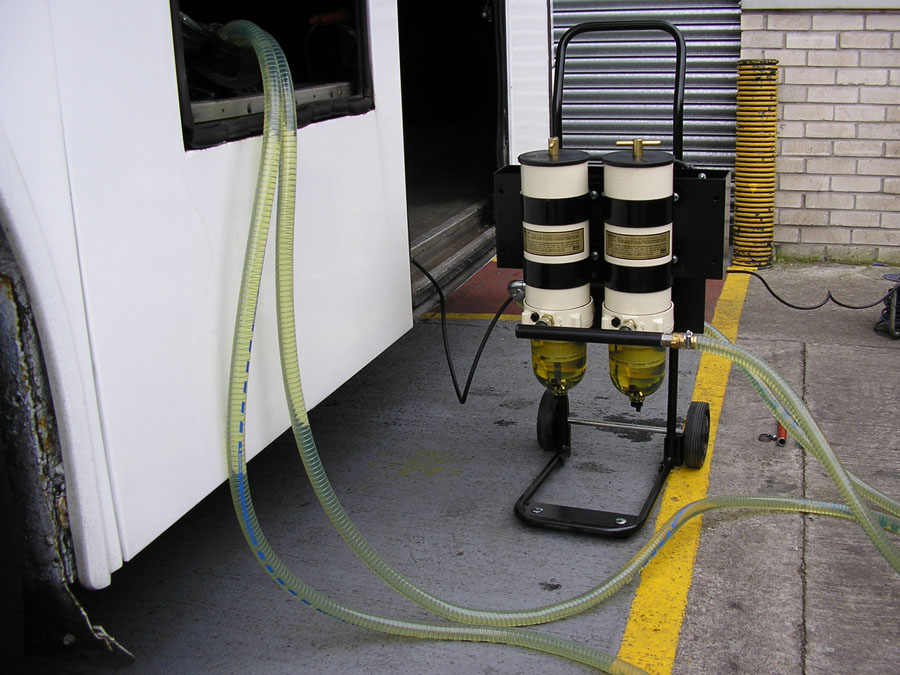The quality of the fuel plays a crucial role in the efficiency and performance of engines. As time passes diesel fuel can get impure, like water, sediment and microbial growth which can negatively impact engine performance and trigger costly repairs. Fuel polishing is a great way to make sure that your engines run smoothly and prevent fuel contamination.
Fuel polishing (also called diesel polishing) is the method of removing contaminants from diesel fuel. It is a highly-specialized service offered by professionals who employ modern techniques and equipment to return fuel to its best state. Polishing your fuel can improve the efficiency of your engine and helps reduce maintenance costs by eliminating harmful substances.
Fuel polishing is available in a range of options to suit the varied needs of the industries that depend on diesel. These companies employ highly-trained specialists who are knowledgeable of fuel systems, and have a deep understanding of the complexities associated with contamination of fuel. Their deep knowledge and advanced tools allow them to diagnose fuel-related problems and apply the correct methods for polishing fuel.
Fuel polishing has as its primary goal the elimination of sediments, water microorganisms, sludge and sludge from diesel fuel. The buildup of water in fuel tanks is often caused through leaks or condensation which causes corrosion, fuel degradation and the growth and spreading of mold and bacteria. Sediment, on the contrary is the result of impurities or degradation in fuel components. These contaminants can block injectors and filters, leading to lower engine performance.
The process of polishing fuel typically involves a number of steps. The process starts by conducting a fuel analysis and sample to determine the degree of contamination and the best course of action. Following the analysis, experts use filtration systems in order to eliminate impurities and contaminants from the fuel. These systems use various filter media and technology to separate and capture contaminants, leaving clean diesel.
Regular fuel polishing offers several key benefits. Firstly, fuel polishing improves the quality of the fuel. This ensures that engines are supplied with clean, uniform fuel that allows them to burn optimally. This improves efficiency and fuel efficiency, leading to cost savings and reduced emissions. In addition, polishing the fuel helps lower the likelihood of engine failure and damage caused by polluted fuel. The elimination of harmful substances can help maintain engine integrity, extending their lifespan and decreasing repairs. For more information, click Diesel fuel polishing
Regular diesel fuel polishing also referred to as diesel polishing offers numerous benefits in maintaining the fuel’s quality. Firstly, it helps to get rid of sediment, water, and microbial contaminants that can cause problems for engines. In removing these impurities via the process of diesel polishing, the quality of fuel is drastically enhanced. This increases the efficiency of combustion and decreases emissions. Additionally, regular polishing of diesel lowers the possibility of engine damage through preventing the clogging of fuel filters, injectors and other critical components. Regularly polishing fuel ensures that fuel storage systems last longer, by preventing the development of corrosion and sludge. Overall, the benefits of regular polishing of diesel fuel, also known as diesel polishing, are improved engine performance as well as cost savings and increased equipment reliability.
Services for polishing fuel are specifically designed to meet the needs of specific industries and their applications. From backup generators and vessels for marine use to construction equipment as well as transport fleets, polishing fuel is an array of options to fight pollution of the fuel supply across a vast variety of industries. It is essential to polish fuel for businesses that rely on an constant and reliable power supply. It’s also important when working in harsh and remote environments where the quality of the fuel can be compromised.
Fuel polishing is an essential process that ensures the cleanliness and the quality of diesel fuel. It enhances the performance of engines decreases maintenance costs and extends the life of equipment by eliminating contamination and impurities. Through investing in a professional approach to polishing of fuel, businesses can ensure their operations are protected, increase performance, and lower the risk caused by fuel contamination. Also, whether you’re managing the fleet of vehicles you own or operating critical power systems think about the advantages of fuel polishing to unlock the full potential of the diesel fuel you use and help propel your business forward.

